A historic transatlantic flight has made headlines because it is the first to be powered entirely by “100% green” aviation fuel, marking a major milestone for sustainable aviation.
This achievement is an important step towards the aviation industry’s goal of reducing its carbon footprint and switching to greener alternatives.
Jump to
- Who is on the flight?
- What is all this fuss about?
- Where will the plane fly?
- How will sustainable air travel decarbonize air travel?
- The UK’s sky-high net zero ambitions
Who is on the flight?
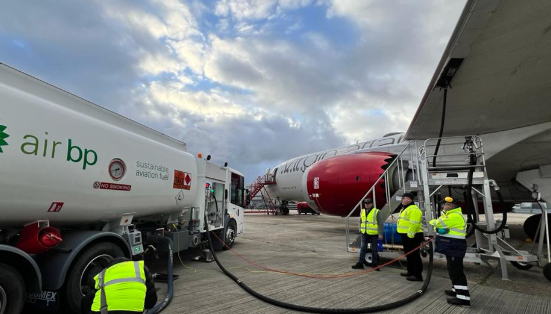
Credit: Sky News
Sir Richard Branson, creator of Virgin, Shai Weiss, CEO of Virgin Atlantic, and UK Transport Secretary Mark Harper are on board this historic flight.
What is all this fuss about?
Virgin Atlantic is leading the way in using 100% sustainable aviation fuel for the first-ever commercial transatlantic flight, launching Jet Zero.
John Alcock and Arthur Brown completed the first non-stop transatlantic flight in 1919, and Virgin Atlantic is demonstrating the viability of using sustainable aviation fuel to reduce carbon emissions associated with long-haul flights.
Using only sustainable aviation fuel (SAF), a long-haul commercial airliner crosses the Atlantic for the first time.
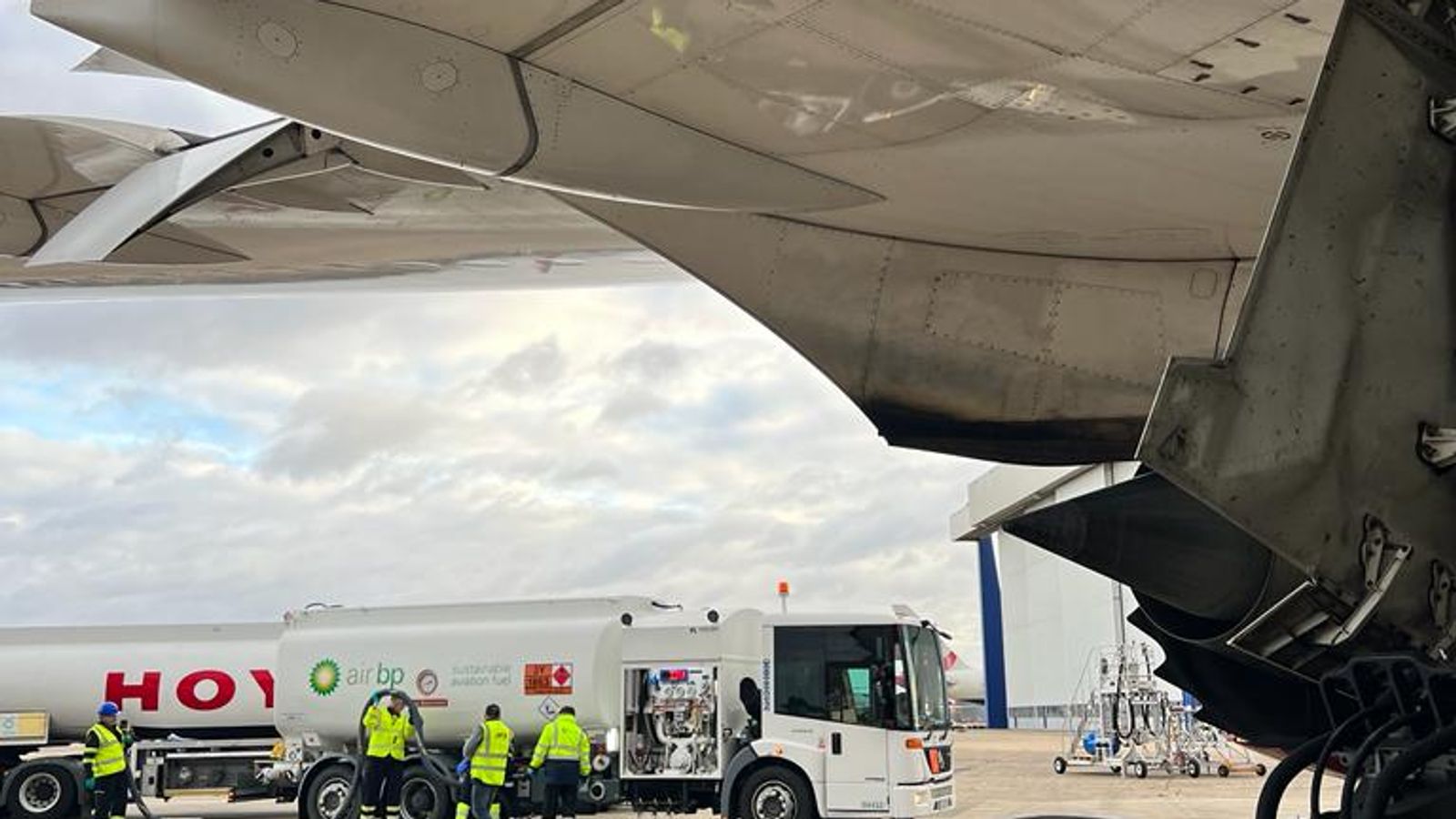
Credit: Sky News
Until now, authorities have only allowed airlines to run their engines using up to 50% green fuel.
“Today’s historic flight, powered by 100% sustainable aviation fuel, shows how we can decarbonize transportation and allow passengers to continue flying whenever and wherever they want,” Harper said in response.
“We will continue to support the UK’s emerging SAF industry as it creates jobs, grows the economy and takes us to Jet Zero. This Government has backed today’s flight taking off.”
Where will the plane fly?
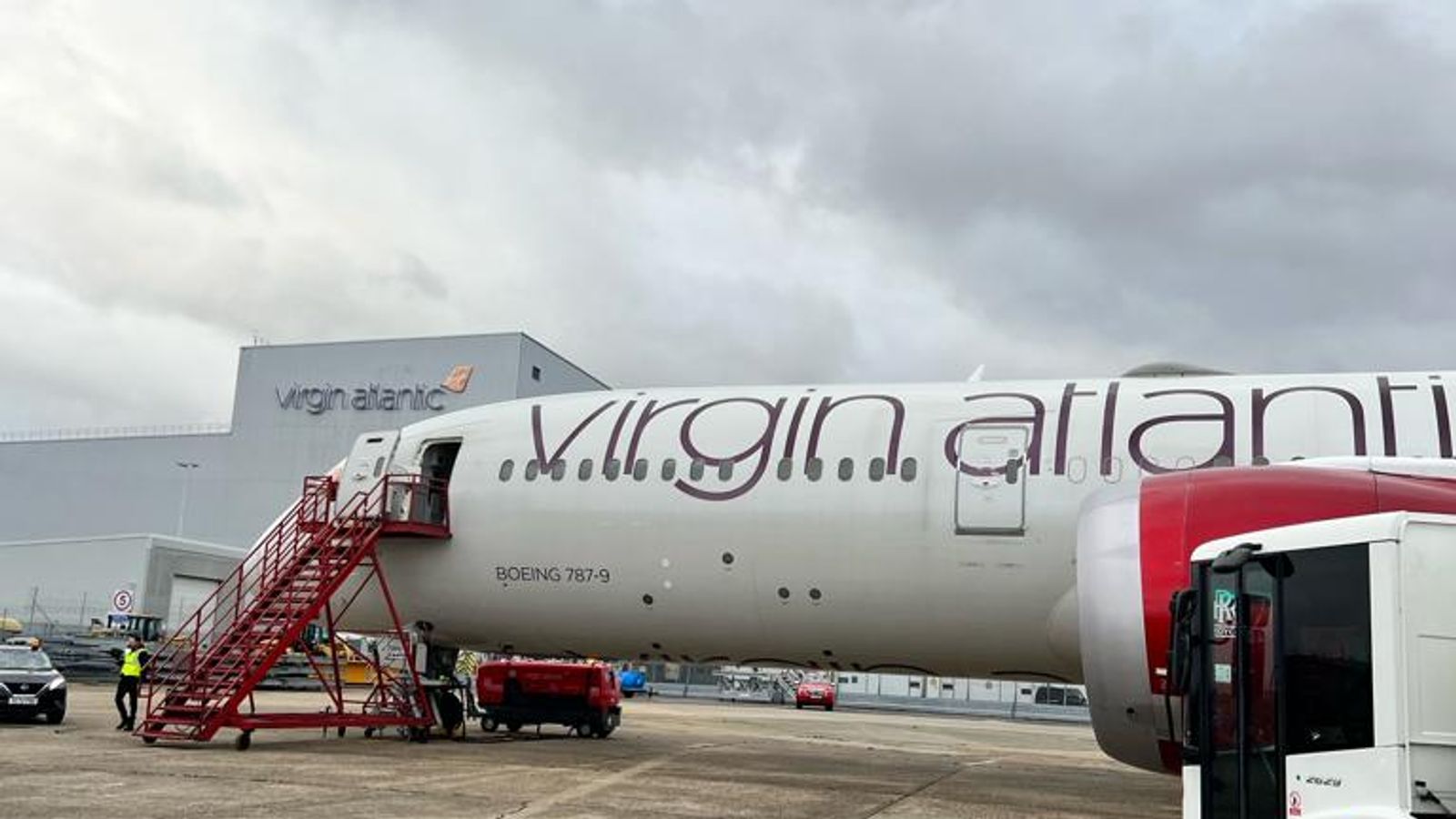
Credit: Sky News
One of Virgin Atlantic’s Boeing 787s will take off from London Heathrow and cross the pond to New York’s JFK International Airport.
This trip typically generates significant carbon emissions, but thanks to sustainable aviation fuel, those emissions will be significantly reduced.
How will sustainable air travel decarbonize air travel?
The UK government challenged Virgin Atlantic and its consortium in December 2022 to make the first transatlantic flight using sustainable aviation fuel.
As part of that challenge, the Department for Transport provided up to £1 million in funding.
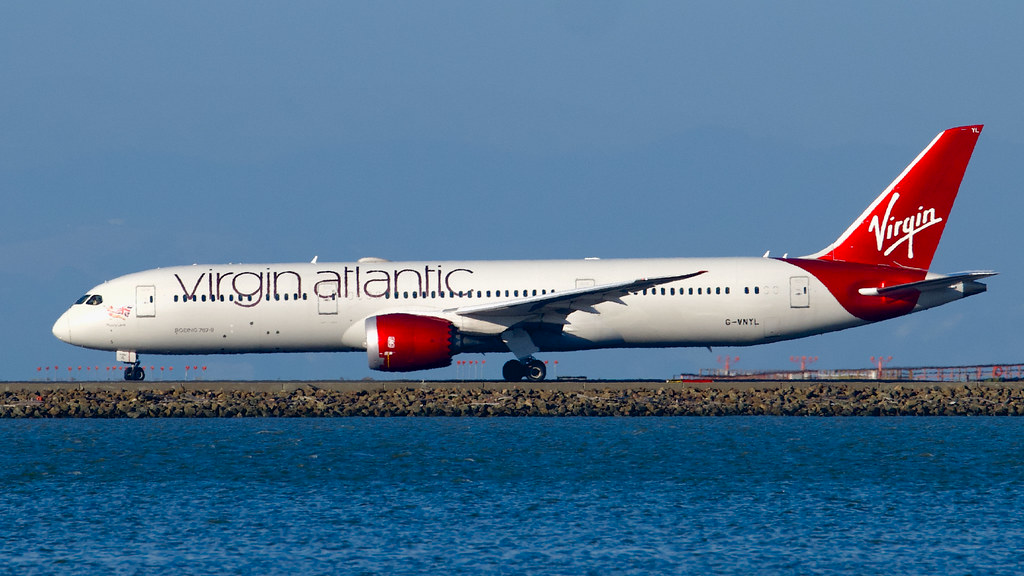
Credit: A2Z Aviation
Waste fats that cannot reach the food chain are used to create the sustainable aviation fuel that powers Virgin Atlantic flights.
Reusing waste products can significantly reduce aviation greenhouse gas emissions by 70% compared to standard jet fuel over its entire life cycle.
A standard that will require 10% of jet fuel to come from sustainable sources by 2030 will make sustainable fuels an increasingly important component of the standard jet fuel mix in the coming years.
The UK’s sky-high net zero ambitions
This action is one component of a broader government campaign to clean up the skies.
The government unveiled the second round of the Advanced Fuels Fund earlier this month, awarding £53 million to nine projects in an effort to expand the market for sustainable aviation fuel.
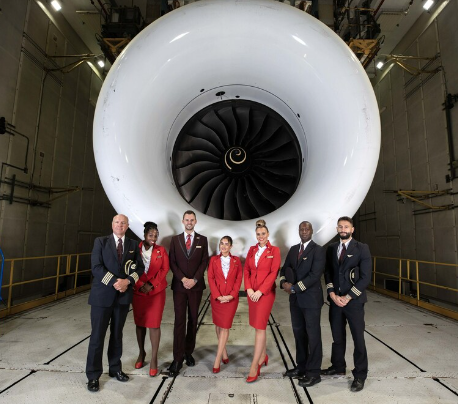
Credit: PR NewsWire
Meeting 2050 climate goals will depend on the project, and Virgin Atlantic’s transatlantic flight will provide vital data to accelerate approval of the fuel and better understand its efficiency.
what do you think about it? Let us know in the comments.
For more trending stories, follow us on Telegram.
Categories: Trending
Source: vtt.edu.vn
